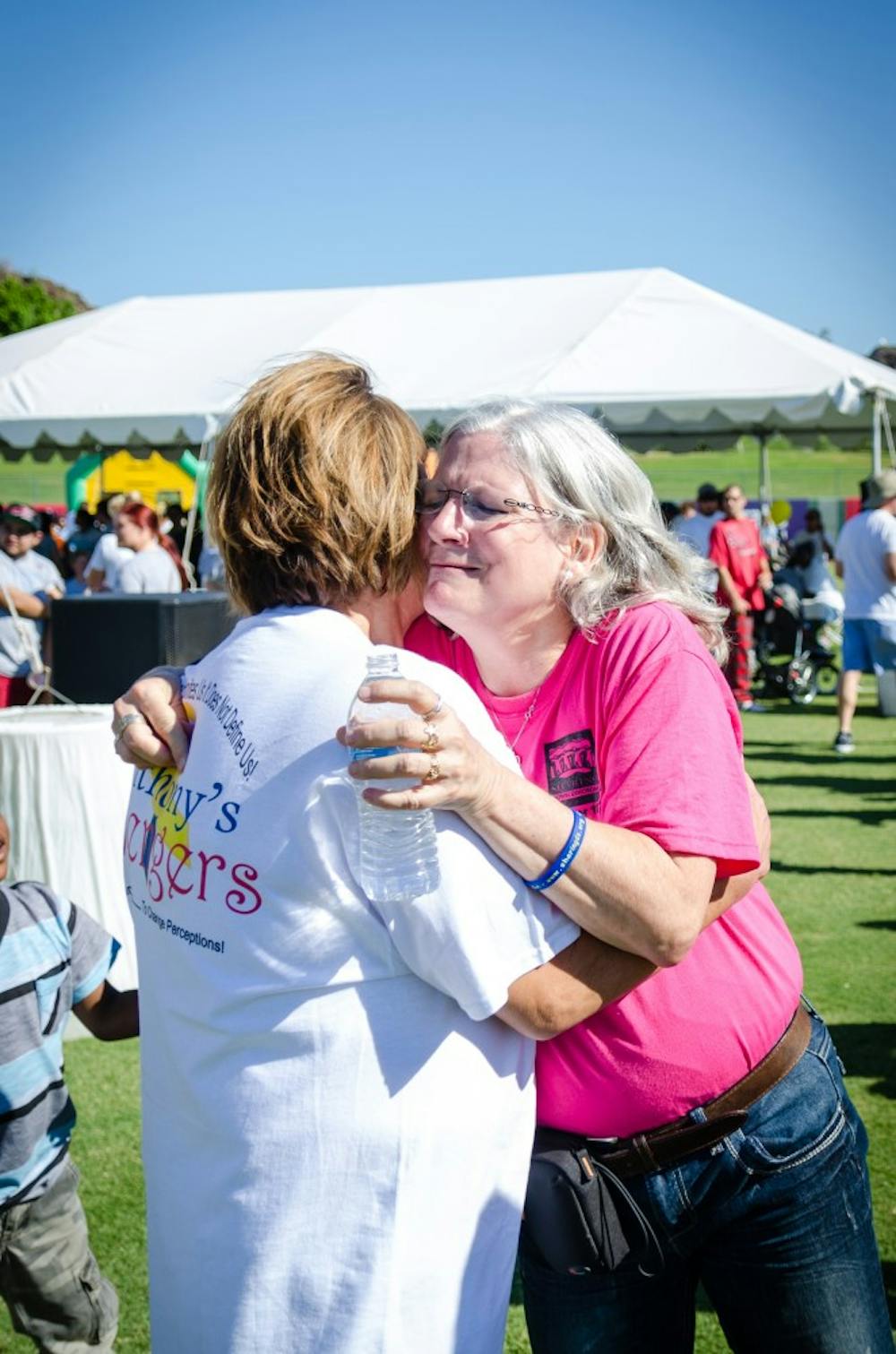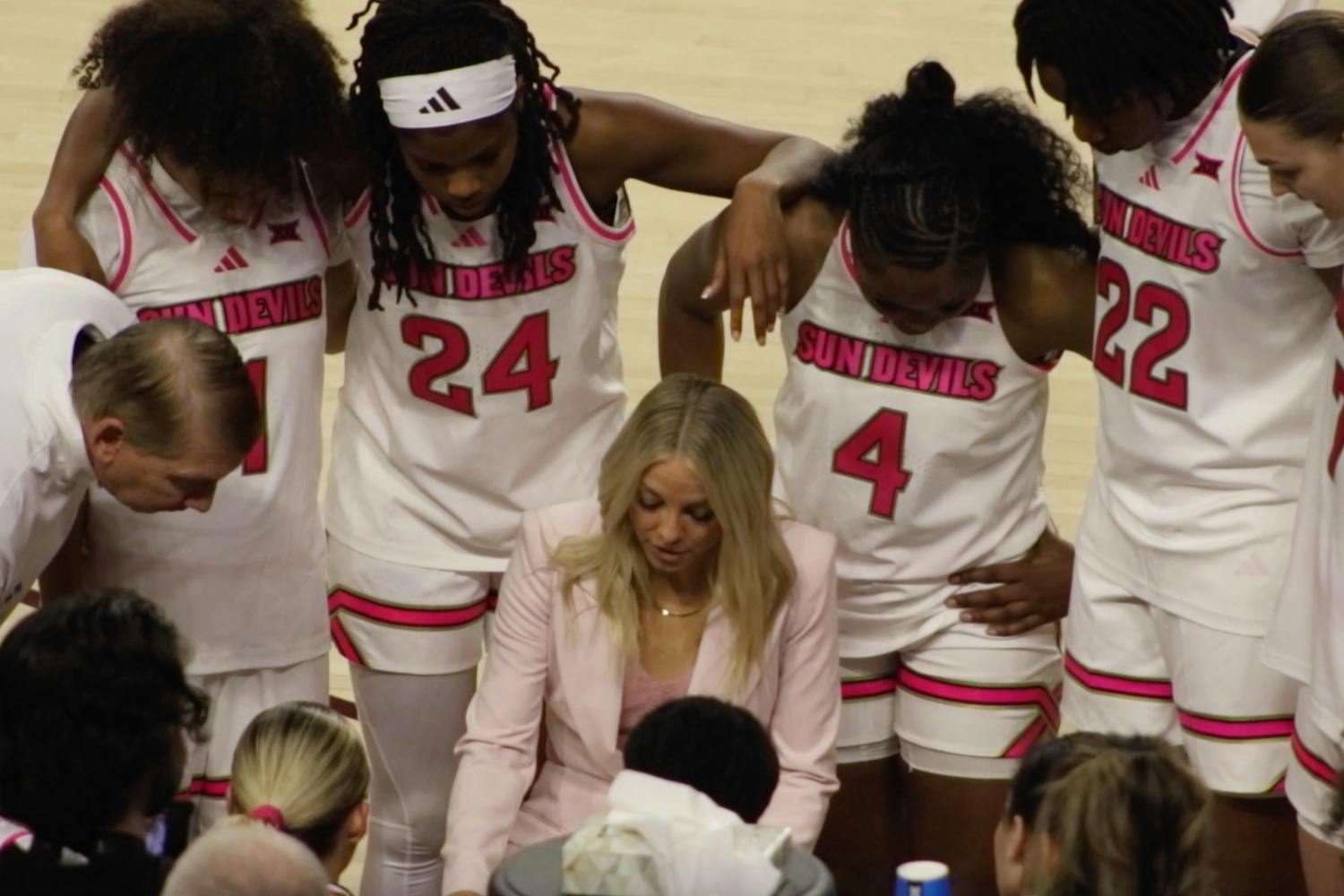 Gina Johnson, the founder of Sharing Down Syndrome Arizona, takes a moment to hug a supporter at the 14th Annual Walk for Down Syndrome. (Photo by Andrew Ybanez)
Gina Johnson, the founder of Sharing Down Syndrome Arizona, takes a moment to hug a supporter at the 14th Annual Walk for Down Syndrome. (Photo by Andrew Ybanez)Thousands of people gathered around the starting line for the Sharing Down Syndrome Walk on Saturday at Tempe Diablo Stadium. The walk, though less than a mile long, delivered its message loud and clear: People do care about helping those with the disorder.
Gina Johnson, founder of the Arizona group Sharing Down Syndrome, said the walk aimed to disseminate information about the disorder.
"The wish in my heart was to educate and empower, but to mostly give hope," she said.
All through the walk, parents gathered around Johnson and David, her 29-year-old son with Down syndrome, to thank her and share their stories of living with the disorder.
Down syndrome is the most common genetic birth defect, Johnson said, and one of every 691 babies has it. With the help of modern research and technology, the average lifespan for these people has increased to about 60 years.
Shannon Ringenbach, an associate dean at ASU, attended the walk. Although she has not been affected by Down syndrome on a personal level, she has been committed to a research project dealing with people of all ages who have it.
Ringenbach said her colleagues have found that pedaling a stationary bike with a motor increases brain activity.
"(It) could create new neural pathways in the brain," she said. "It would make them have better clinical function."
In a brochure, Ringenbach explained that by moving faster, the brain responds with an increase in motor, cognitive and clinical functions.
"If you pedal faster… you will think faster," the brochure read.
Kinesiology junior Amber Sandoval-Menendez and physical, nutrition and wellness graduate student Simon Holzapfel volunteered with Ringenbach both in the lab and at the walk.
Sandoval-Menendez said this was her first time working with people with Down syndrome.
"This is really my first impression," she said. "(It) has been cool for me, getting to interact with the students on a more personal level."
Holzapfel works with an adaptive physical education program. He said he has seen the improvements in the participants' motor and social development.
"This is the most comprehensive program I've seen for people with Down syndrome," he said.
During the walk, the student volunteers sold food, ran booths, cleaned up trash and helped spread the word of Ringenbach's study.
Through expanding their minds, people with Down syndrome are capable of learning and performing great acts, Johnson said.
Her son, David, has excelled in sign language classes at a community college. Jenny, another adult with the disorder, has taken up drawing and sold pieces at the event. Between donations and sales, the walk made more than $75,000.
"The best learning (David) can have is by growing up with real kids," Johnson said.
This is a change of mindset from the past half century. Beginning in the 1970s, students with this disorder were sent to an institution to learn, instead of a public school system.
That is how Johnson first stepped into the spotlight to advocate equality for the genetically different. She wanted to send her son to a school with other children.
"I became caught up in a movement of pulling children out of institutions," Johnson said.
As a result, the family moved to Arizona to enroll David in public school.
"The greatest thing we can do for these children is let them be part of this world – not hide them away," she said.
Reach the reporter at lmnewma1@asu.edu or follow him on Twitter @Logan_Newsman




